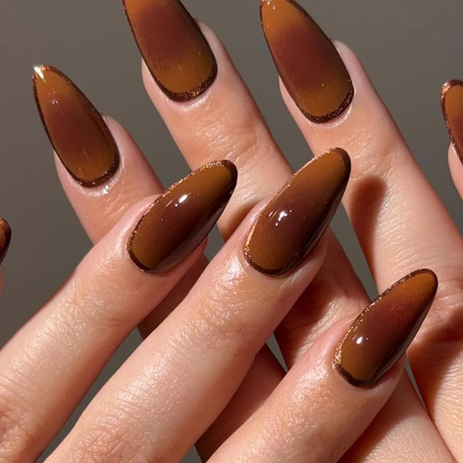The Visionaries Behind South Africa’s Stained Glass Productions
- BY ELLE NKOSI

- Sep 1, 2025
- 3 min read

When you think of television giants in South Africa, few names carry the weight of Stained Glass Productions. From the cultural juggernaut Uzalo to the globally streamed phenomenon The Wife, the Durban-based company has rewritten what it means to tell South African stories on a large scale. At the heart of it all is Gugu Zuma-Ncube, who alongside Pepsi Pokane, co-founded the studio out of both frustration with an industry too slow to shift and faith in the power of rooted storytelling.
For Gugu, the company’s genesis was as organic as it was urgent. “It really began with a shared appreciation for filmmaking,” Gugu explains. “We were both passionate about storytelling and deeply aware of the gaps in the industry, particularly in how South African stories—especially from KZN—were being told or overlooked.”
The early conversations weren’t about empire-building, they were about possibility. “‘What if we created our own slate? What if we hired who we believed in?’ It started as a series of what-ifs. Then it shifted to ‘when,’ and that’s when the vision crystallized.”
The name itself carries symbolism. “Stained glass is fragmented pieces of colour and shape that come together to create something beautiful and whole, especially when light hits it. That metaphor stuck with us.”
From Uzalo to The Wife: Redefining Dominance

The mission from day one was simple: tell stories they knew and could stand behind. That clarity birthed Uzalo, which grew into one of South Africa’s most-watched shows. Its unapologetic roots proved that township life and Zulu culture weren’t niche, they were mass-market, globally relevant narratives.
“Did we anticipate the dominance of Uzalo or The Wife? The resonance surprised even us,” Gugu admits. “But we start with what’s real. Everything else; tone, setting, pacing—builds around that truth.”
When adapting literature like The Wife, the guiding principle was balance. “We care about respecting the spirit of the literature, but also about structuring it so it speaks volumes to audiences. It’s never about copy-paste; it’s about translation with integrity.”
Crafting a Show’s DNA
For Stained Glass, pre-production is less about formulas and more about vision. “We want to know what the show wants to say and how it wants to say it. Clarity of vision is non-negotiable.”
The greenlight process is equally demanding. Scripts must not only carry narrative weight but also demonstrate cultural grounding. Gugu and Pepsi remain deeply hands-on. “Narrative pacing, casting, episode structure—we’re involved. Always.”
Different formats bring different pressures. “With a long-running drama, it’s a marathon. With film, it’s a sprint. Both require endurance, but in different ways.”
Much of Stained Glass’s catalog draws from Zulu culture and township life, but Gugu rejects the idea that authenticity and mass-market appeal are opposites. “Zulu culture is mass-market. Township life is globally relevant. And when global audiences come to our work, they come on our terms. That’s the power of rooted storytelling.”
In the age of Netflix and Showmax, where audiences in New York or Lagos can watch Durban dramas instantly, the company’s philosophy hasn’t changed. “It’s still ‘for us, by us.’ The difference is now the world gets to witness it.”
Risk, Mentorship, and the Future

Boldness has become part of the company’s DNA. “We’re already taking risks. To resonate today, you must be fearless—visually, structurally, thematically.”
But Gugu stresses that infrastructure and not talent is South Africa’s biggest challenge. “Talent needs more than a break. It needs a runway. That’s why we invest in workshops, mentorship, and real-time experiences. People are your most valuable asset. Not equipment. Not locations. People.”
Mentorship, for her, isn’t just teaching; it’s stepping back. “Sometimes mentoring means letting someone try. Listening is very important.”
Over time, Gugu and Pepsi have developed a rhythm that works. “Pepsi brings big-picture vision, strategy, ambition. I’m more focused on narrative and hands-on development. We’ve grown into a rhythm. And like any relationship, it’s about knowing when to listen and when to let someone try.”
Their ability to navigate creative disagreements comes down to respect for that shared vision. It’s less about who wins an argument and more about what serves the story.
What’s Next Behind the Glass
Gugu hints at a 2026 slate that pushes boundaries even further. “We’ll be continuing with what we’ve been bringing, but we also have more up our sleeves. Excitement doesn’t do justice to how I feel about what’s coming.”
In terms of legacy, her vision is clear. “That we told the truth. That we made space. That we didn’t wait for permission.”
Behind the glass, Stained Glass Productions is less a company and more a cultural movement. By telling stories unapologetically rooted in South African soil, Gugu and Pepsi have created a body of work that speaks both to the neighbor across the street and the viewer across the ocean. Their message is simple: stories matter, and South African stories—told boldly and authentically, light up the world.


























































